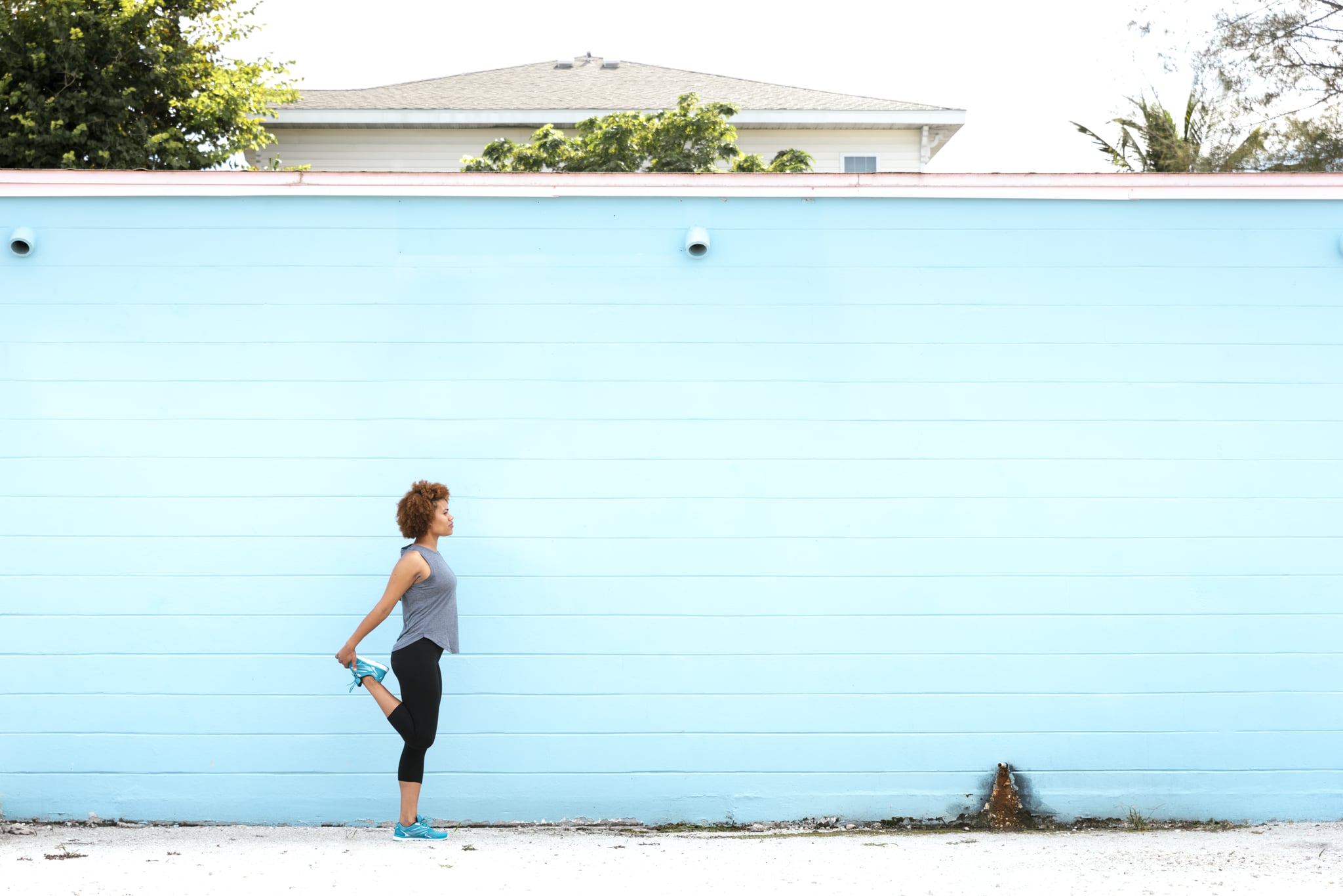How Sore Is Too Sore to Run? We Asked 2 Running Doctors, and Here's What They Said
April 18, 2019
by MAGGIE RYAN

Runners are notorious for pushing through the pain when it might be smarter to ease up. To be fair, it's often hard to know when a pain is just plain soreness from a tough workout or run, or when it's serious enough to merit a break. And whether you're training for a race or competition or are just dedicated to your routine, taking a break can feel tougher than a tempo run or a set of burpees. POPSUGAR asked two exercise physiologists and running experts when exactly it's OK to run when you're sore and when it's better to stop and rest.
To review, the soreness we're talking about stems from micro-tears in your muscles, and is also known as delayed onset muscle soreness, or DOMS, which is that stiffness and soreness you'll feel for a day or two after a hard run or workout. A sharper, more muscle-specific pain may indicate a strained or pulled muscle, which you'll need a doctor to diagnose or treat.
When Can You Run?
"If running is not provoking or making your pain and soreness worse," said Steven Mayer, MD, sports medicine specialist at the Northwestern Medicine Running Clinic, "I'm very comfortable with you continuing to run as you normally would." If the soreness isn't getting worse when you run, essentially, you should be good to go — it's likely not running-related or a muscle strain or pull, so you won't make it any worse. An easy run can even soothe soreness, said Michael Fredericson, MD, professor and director of physical medicine and sports medicine at Stanford University.
However, Dr. Mayer told POPSUGAR that it's best not to start increasing your mileage or intensity until the soreness has passed. "Most running injuries we see are overuse injuries," he said. "It starts out as something mild, so you keep going and it gets worse." Pushing your pace, distance, or intensity when your muscles are sore can lead to tightness and inflammation, which can cause a muscle tear. "Once it gets to that point, it gets very hard to treat," Dr. Mayer said. Easing up on your training is the best way to avoid that outcome.
When Should You Stop?
On the flip side, if you think that running caused your injury — and if running on it makes it feel worse — both Dr. Mayer and Dr. Fredericson agreed that it's best to stop and give yourself time to recover. It's likely that the injury is related to running, so continuing to run could aggravate it. "Focus on your stretching for a week or two," Dr. Mayer said. You can start slowly bringing running back in after a few weeks, stopping again if you start to feel pain. The soreness could also be related to a strained or pulled muscle, in which case it's essential to rest it from any exercise until you get a doctor's OK.
You should also avoid running on a sore Achilles tendon, Dr. Fredericson said. Pushing a sore Achilles too far can lead to Achilles tendonitis, which occurs when the tendon gets inflamed and which can have you off your feet for a lot longer than simple soreness.
You should also make sure your soreness and pain is coming from a muscle, and not a bone. Push on the area that's sore; if it's hard, then the pain is coming from a bone. That can be a sign of a more serious injury, like a stress fracture. Look out for swelling around the source of pain as well. If you see either of those signs — bone pain or swelling — visit your doctor for an evaluation.
What Can You Do Instead?
If soreness or injury puts you out of running shape for a while, it's time to turn to lower-impact activities. Luckily, you have a lot of choices. "This is when the pool is great," Dr. Fredericson said. Swimming laps is easy on your joints and a good cardio replacement for running; Dr. Mayer recommended water jogging as well. You can also hit the elliptical or the stationary bike, or try a low-impact cardio abs workout for the gym or at home. The key is to find an activity that doesn't exacerbate your running injuries while still giving you the workout you want.
"I think people are always scared that they won't be able to exercise," Dr. Mayer said. "But there are very few injuries that would force you to stop completely. We may have to modify or switch from running to something else, but you can find a way to stay in shape while treating a specific problem."
Image Source: Getty / KOLOstock




 Reply With Quote
Reply With Quote


 The friend who wants to know is the "marathonish girlfriend."
The friend who wants to know is the "marathonish girlfriend." 




